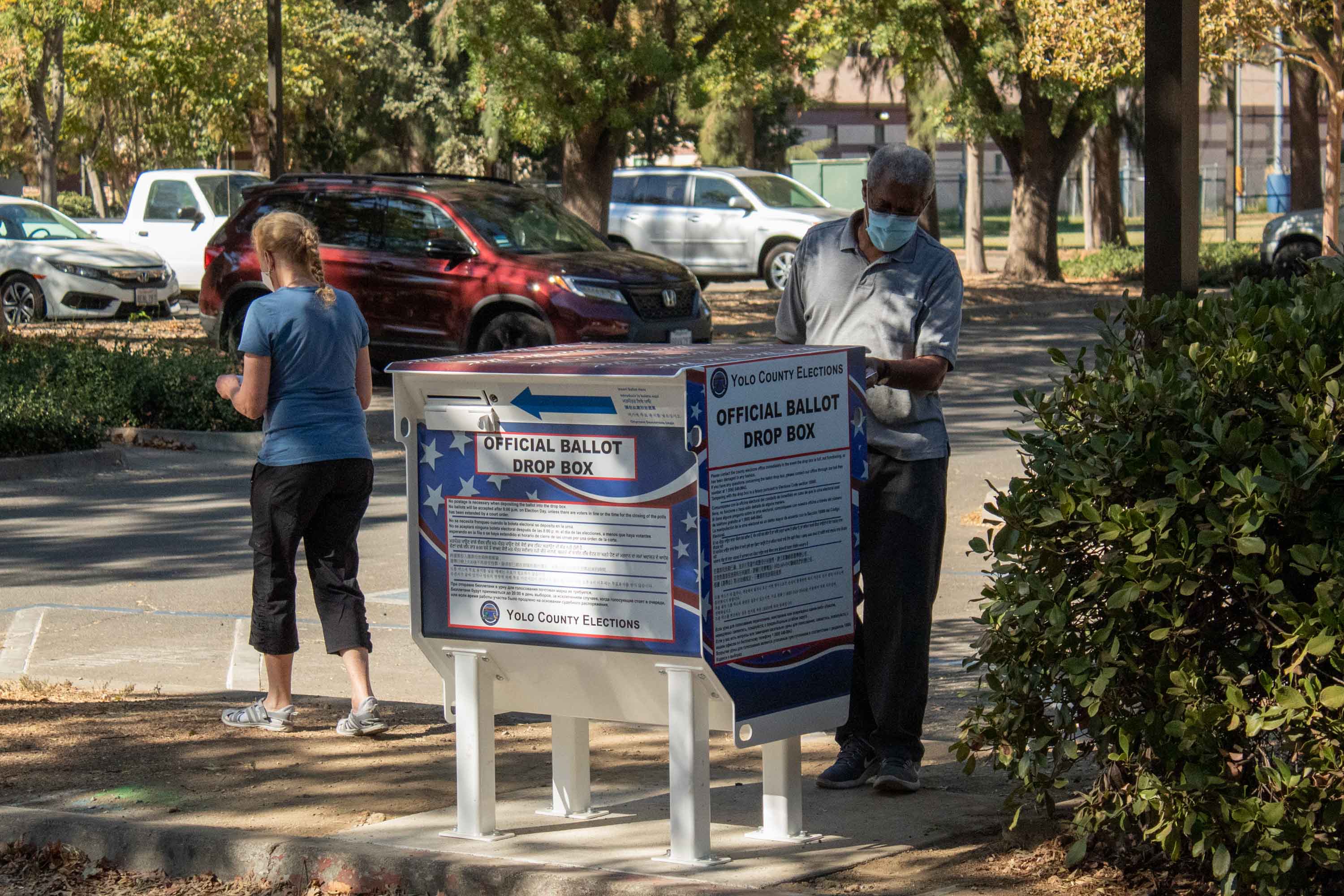With Election Day around the corner, press ownership blocks endorsements from newspaper editorial boards
Disclaimer: While this editorial will be discussing pressing issues facing reporters this election, The California Aggie Editorial Board is not able to make formal political endorsements, according to external bylaws. This story will discuss the anti-press policies of certain political candidates, but not by name.
By THE EDITORIAL BOARD
Election Day is rapidly approaching — in less than one week, mail-in ballots are due and the country will soon see new leadership that will impact day-to-day life for Americans for years to come. There is no sugarcoating it this time: the stakes are high and lives are on the line.
With polls showing Vice President Kamala Harris and former President Donald Trump in a tight race, endorsements are all the more important. Unfortunately, things may look a little different this year. Over the last week, the Los Angeles Times and The Washington Post have both been prohibited by their ownership from releasing endorsements for Democratic nominee Harris.
Editorial boards serve as part of the opinion section of the newspaper, represent the beliefs of the paper’s editorial staff and speak out on critical issues. In a democracy, fair reporting from newspapers is essential to keep an eye on unchecked powers and local authorities, as well as telling people’s everyday stories. However, publications offer more than news. Commentaries on local opinion, reviews and political endorsements are all vital services independent newspapers can offer.
The L.A. Times Editorial Board had drafted an endorsement article for Harris when owner Patrick Soon-Shiong decided the paper would not be offering an endorsement for any candidate this election. The Post Editorial Board also had plans of endorsing Harris until CEO Jeff Bezos, the billionaire founder of Amazon, stopped not only this endorsement but the opportunity for the Editorial Board to endorse any presidential candidate in the future.
Following these recent restrictions, many editors have left the L.A. Times and more than 200,000 subscribers have canceled both their print and online subscriptions to The Post.
“We are deeply concerned about our owner’s decision to block a planned endorsement in the presidential race,” a statement from The L.A. Times Guild Unit Council and Bargaining Committee reads. “We are even more concerned that he is now unfairly assigning blame to Editorial Board members for his decision not to endorse.”
The California Aggie Editorial Board condemns the recent restrictions on newspaper editorial boards’ right to endorse a presidential candidate. The leadership of every newspaper, from student to local to national, deserves the right to weigh in on elections.
These restrictions also set a dangerous precedent that ownership can intervene in editorials whenever they see fit. This is why, in part, the Society of Professional Journalists (SPJ) has condemned these recent announcements.
“If ownership begins dictating what stories can or cannot be published, it sets a precedent for compromising journalistic independence, which could lead to deeper restrictions on news coverage over time,” the former National President of SPJ, Lynn Walsh, said in their statement.
This is especially distressing in an election where journalists’ First Amendment rights are being called into question. One of the two major presidential candidates has continuously threatened these rights and scrutinized the press.
The aforementioned candidate has proposed stripping news outlets such as ABC and CBS News of their licenses, taking the Federal Communications Commission (FCC) under full control under the executive branch and jailing reporters; they have also suggested jailing publishers and “top editors.”
Last year, Politico reporters broke the news that the Supreme Court was going to draft plans to overturn Roe v. Wade after a source leaked the draft opinion to them. Following the leak, the court shared they would investigate the situation, and the candidate mentioned demanded their arrest.
“They’ll never find out, [and] it’s important that they do,” the candidate in mention said in a Truth Social post. “So, go to the reporter [and] ask him/her who it was. If not given the answer, put whoever in jail until the answer is given. You might add the editor and publisher to the list.”
This is unprecedented, anti-press and violates the protections journalists are given under the First Amendment — this type of rhetoric about the press undermines democracy itself. In an election that will affect reporters so greatly, editorial boards must be allowed to speak out.
Other than the repercussions for news publications, this election will greatly affect everyone. From access to reproductive healthcare to immigration and potential mass deportations to the Supreme Court, your ballot will have nationwide impacts.
In a very polarized political climate, discussing this election may feel overwhelming — but it is important to exercise your civic duty and encourage those around you to do the same. While we cannot endorse a candidate or tell you who to vote for, The California Aggie Editorial Board encourages you to use your best judgment this election season and pay attention to what is at stake.
Written by: The Editorial Board











